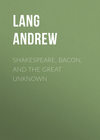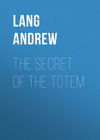Kitabı oku: «The Red True Story Book», sayfa 12
EYLAU. THE MARE LISETTE
GENERAL MARBOT, one of Napoleon's most distinguished soldiers, thus describes his adventures at the battle of Eylau. 'To enable you to understand my story, I must go back to the autumn of 1805, when the officers of the Grand Army, among their preparations for the battle of Austerlitz, were completing their outfits. I had two good horses, the third, for whom I was looking, my charger, was to be better still. It was a difficult thing to find, for though horses were far less dear than now, their price was pretty high, and I had not much money; but chance served me admirably. I met a learned German, Herr von Aister, whom I had known when he was a professor at Sorèze. He had become tutor to the children of a rich Swiss banker, M. Scherer, established at Paris in partnership with M. Finguerlin. He informed me that M. Finguerlin, a wealthy man, living in fine style, had a large stud, in the first rank of which figured a lovely mare, called Lisette, easy in her paces, as light as a deer, and so well broken that a child could lead her. But this mare, when she was ridden, had a terrible fault, and fortunately a rare one: she bit like a bulldog, and furiously attacked people whom she disliked, which decided M. Finguerlin to sell her. She was bought for Mme. de Lauriston whose husband, one of the Emperor's aides-de-camp, had written to her to get his campaigning outfit ready. When selling the mare M. Finguerlin had forgotten to mention her fault, and that very evening a groom was found disembowelled at her feet. Mme. de Lauriston, reasonably alarmed, brought an action to cancel the bargain; not only did she get her verdict, but, in order to prevent further disasters, the police ordered that a written statement should be placed in Lisette's stall to inform purchasers of her ferocity, and that any bargain with regard to her should be void unless the purchaser declared in writing that his attention had been called to the notice. You may suppose that with such a character as this the mare was not easy to dispose of, and thus Herr von Aister informed me that her owner had decided to let her go for what anyone would give. I offered 1,000 francs, and M. Finguerlin delivered Lisette to me, though she had cost him 5,000. This animal gave me a good deal of trouble for some months. It took four or five men to saddle her, and you could only bridle her by covering her eyes and fastening all four legs; but once you were on her back, you found her a really incomparable mount.
'However, since while in my possession she had already bitten several people, and had not spared me, I was thinking of parting with her. But I had meanwhile engaged in my service Francis Woirland, a man who was afraid of nothing, and he, before going near Lisette, whose bad character had been mentioned to him, armed himself with a good hot roast leg of mutton. When the animal flew at him to bite him, he held out the mutton; she seized it in her teeth, and burning her gums, palate, and tongue, gave a scream, let the mutton drop, and from that moment was perfectly submissive to Woirland, and did not venture to attack him again. I employed the same method with a like result. Lisette became as docile as a dog, and allowed me and my servant to approach her freely. She even became a little more tractable towards the stablemen of the staff, whom she saw every day, but woe to the strangers who passed near her! I could quote twenty instances of her ferocity, but I will confine myself to one. While Marshal Augereau was staying at the château of Bellevue, near Berlin, the servants of the staff, having observed that when they went to dinner someone stole the sacks of corn that were left in the stable, got Woirland to unfasten Lisette and leave her near the door. The thief arrived, slipped into the stable, and was in the act of carrying off a sack, when the mare seized him by the nape of the neck, dragged him into the middle of the yard, and trampled on him till she broke two of his ribs. At the shrieks of the thief people ran up, but Lisette would not let him go till my servant and I compelled her, for in her fury she would have flown at anyone else. She had become still more vicious ever since the Saxon hussar officer, of whom I have told you, had treacherously laid open her shoulder with a sabre-cut on the battlefield of Jena.
'Such was the mare which I was riding at Eylau at the moment when the fragments of Augereau's army corps, shattered by a hail of musketry and cannon-balls, were trying to rally near the great cemetery. You will remember how the 14th of the line had remained alone on a hillock, which it could not quit except by the Emperor's order. The snow had ceased for the moment; we could see how the intrepid regiment, surrounded by the enemy, was waving its eagle in the air to show that it still held its ground and asked for support. The Emperor, touched by the grand devotion of these brave men, resolved to try to save them, and ordered Augereau to send an officer to them with orders to leave the hillock, form a small square, and make their way towards us, while a brigade of cavalry should march in their direction and assist their efforts. This was before Murat's great charge. It was almost impossible to carry out the Emperor's wishes, because a swarm of Cossacks was between us and the 14th, and it was clear that any officer who was sent towards the unfortunate regiment would be killed or captured before he could get to it. But the order was positive, and the marshal had to comply.
'It was customary in the Imperial army for the aides-de-camp to place themselves in file a few paces from their general, and for the one who was in front to go on duty first: then, when he had performed his mission, to return and place himself last, in order that each might carry orders in his turn, and dangers might be shared equally. A brave captain of engineers named Froissard, who, though not an aide-de-camp, was on the marshal's staff, happened to be nearest to him, and was bidden to carry the order to the 14th. M. Froissard galloped off; we lost sight of him in the midst of the Cossacks, and never saw him again nor heard what had become of him. The marshal, seeing that the 14th did not move, sent an officer named David; he had the same fate as Froissard: we never heard of him again. Probably both were killed and stripped, and could not be recognised among the many corpses which covered the ground. For the third time the marshal called, "The officer for duty." It was my turn.
'Seeing the son of his old friend, and I venture to say his favourite aide-de-camp, come up, the kind marshal's face changed and his eyes filled with tears, for he could not hide from himself that he was sending me to almost certain death. But the Emperor must be obeyed. I was a soldier; it was impossible to make one of my comrades go in my place, nor would I have allowed it; it would have been disgracing me. So I dashed off. But though ready to sacrifice my life I felt bound to take all necessary precautions to save it. I had observed that the two officers who went before me had gone with swords drawn, which led me to think that they had purposed to defend themselves against any Cossacks who might attack them on the way. Such defence, I thought, was ill-considered, since it must have compelled them to halt in order to fight a multitude of enemies, who would overwhelm them in the end. So I went otherwise to work, and leaving my sword in the scabbard, I regarded myself as a horseman who is trying to win a steeplechase, and goes as quickly as possible and by the shortest line towards the appointed goal, without troubling himself with what is to right or left of his path. Now, as my goal was the hillock occupied by the 14th, I resolved to get there without taking any notice of the Cossacks, whom in thought I abolished. This plan answered perfectly. Lisette, lighter than a swallow and flying rather than running, devoured the intervening space, leaping the piles of dead men and horses, the ditches, the broken gun-carriages, the half-extinguished bivouac fires. Thousands of Cossacks swarmed over the plain. The first who saw me acted like sportsmen who, when beating, start a hare, and announce its presence to each other by shouts of "Your side! Your side!" but none of the Cossacks tried to stop me, first, on account of the extreme rapidity of my pace, and also probably because, their numbers being so great, each thought that I could not avoid his comrades farther on; so that I escaped them all, and reached the 14th regiment without either myself or my excellent mare having received the slightest scratch.
'I found the 14th formed in square on the top of the hillock, but as the slope was very slight the enemy's cavalry had been able to deliver several charges. These had been vigorously repulsed, and the French regiment was surrounded by a circle of dead horses and dragoons, which formed a kind of rampart, making the position by this time almost inaccessible to cavalry; as I found, for in spite of the aid of our men, I had much difficulty in passing over this horrible entrenchment. At last I was in the square. Since Colonel Savary's death at the passage of the Wkra, the 14th had been commanded by a major. While I imparted to this officer, under a hail of balls, the order to quit his position and try to rejoin his corps, he pointed out to me that the enemy's artillery had been firing on the 14th for an hour, and had caused it such loss that the handful of soldiers which remained would inevitably be exterminated as they went down into the plain, and that, moreover, there would not be time to prepare to execute such a movement, since a Russian column was marching on him, and was not more than a hundred paces away. "I see no means of saving the regiment," said the major; "return to the Emperor, bid him farewell from the 14th of the line, which has faithfully executed his orders, and bear to him the eagle which he gave us, and which we can defend no longer: it would add too much to the pain of death to see it fall into the hands of the enemy." Then the major handed me his eagle, saluted for the last time by the glorious fragment of the intrepid regiment with cries of "Vive l'Empereur!" they were going to die for him. It was the Cæsar morituri te salutant of Tacitus,33 but in this case the cry was uttered by heroes. The infantry eagles were very heavy, and their weight was increased by a stout oak pole on the top of which they were fixed. The length of the pole embarrassed me much, and as the stick without the eagle could not constitute a trophy for the enemy, I resolved with the major's consent to break it and only carry off the eagle. But at the moment when I was leaning forward from my saddle in order to get a better purchase to separate the eagle from the pole, one of the numerous cannon-balls which the Russians were sending at us went through the hinder peak of my hat, less than an inch from my head. The shock was all the more terrible since my hat, being fastened on by a strong leather strap under the chin, offered more resistance to the blow. I seemed to be blotted out of existence, but I did not fall from my horse; blood flowed from my nose, my ears, and even my eyes; nevertheless I still could hear and see, and I preserved all my intellectual faculties, although my limbs were paralysed to such an extent that I could not move a single finger.
'Meanwhile the column of Russian infantry which we had just perceived was mounting the hill; they were grenadiers wearing mitre-shaped caps with metal ornaments. Soaked with spirits, and in vastly superior numbers, these men hurled themselves furiously on the feeble remains of the unfortunate 14th, whose soldiers had for several days been living only on potatoes and melted snow; that day they had not had time to prepare even this wretched meal. Still our brave Frenchmen made a valiant defence with their bayonets, and when the square had been broken, they held together in groups and sustained the unequal fight for a long time.
'During this terrible struggle several of our men, in order not to be struck from behind, set their backs against my mare's flanks, she, contrary to her practice, remaining perfectly quiet. If I had been able to move I should have urged her forward to get away from this field of slaughter. But it was absolutely impossible for me to press my legs so as to make the animal I rode understand my wish. My position was the more frightful since, as I have said, I retained the power of sight and thought. Not only were they fighting all round me, which exposed me to bayonet-thrusts, but a Russian officer with a hideous countenance kept making efforts to run me through. As the crowd of combatants prevented him from reaching me, he pointed me out to the soldiers around him, and they, taking me for the commander of the French, as I was the only mounted man, kept firing at me over their comrades' heads, so that bullets were constantly whistling past my ear. One of them would certainly have taken away the small amount of life that was still in me had not a terrible incident led to my escape from the mêlée.
'Among the Frenchmen who had got their flanks against my mare's near flank was a quartermaster-sergeant, whom I knew from having frequently seen him at the marshal's, making copies for him of the "morning states." This man, having been attacked and wounded by several of the enemy, fell under Lisette's belly, and was seizing my leg to pull himself up, when a Russian grenadier, too drunk to stand steady, wishing to finish him by a thrust in the breast, lost his balance, and the point of his bayonet went astray into my cloak, which at that moment was puffed out by the wind. Seeing that I did not fall, the Russian left the sergeant and aimed a great number of blows at me. These were at first fruitless, but one at last reached me, piercing my left arm, and I felt with a kind of horrible pleasure my blood flowing hot. The Russian grenadier with redoubled fury made another thrust at me, but, stumbling with the force which he put into it, drove his bayonet into my mare's thigh. Her ferocious instincts being restored by the pain, she sprang at the Russian, and at one mouthful tore off his nose, lips, eyebrows, and all the skin of his face, making of him a living death's-head, dripping with blood. Then hurling herself with fury among the combatants, kicking and biting, Lisette upset everything that she met on her road. The officer who had made so many attempts to strike me tried to hold her by the bridle; she seized him by his belly, and carrying him off with ease, she bore him out of the crush to the foot of the hillock, where, having torn out his entrails and mashed his body under her feet, she left him dying on the snow. Then, taking the road by which she had come, she made her way at full gallop towards the cemetery of Eylau. Thanks to the hussar's saddle on which I was sitting, I kept my seat. But a new danger awaited me. The snow had begun to fall again, and great flakes obscured the daylight when, having arrived close to Eylau, I found myself in front of a battalion of the Old Guard, who, unable to see clearly at a distance, took me for an enemy's officer leading a charge of cavalry. The whole battalion at once opened fire on me; my cloak and my saddle were riddled, but I was not wounded nor was my mare. She continued her rapid course, and went through the three ranks of the battalion as easily as a snake through a hedge. But this last spurt had exhausted Lisette's strength; she had lost much blood, for one of the large veins in her thigh had been divided, and the poor animal collapsed suddenly and fell on one side, rolling me over on the other.
'Stretched on the snow among the piles of dead and dying, unable to move in any way, I gradually and without pain lost consciousness. I felt as if I was being gently rocked to sleep. At last I fainted quite away without being revived by the mighty clatter which Murat's ninety squadrons advancing to the charge must have made in passing close to me and perhaps over me. I judge that my swoon lasted four hours, and when I came to my senses I found myself in this horrible position. I was completely naked, having nothing on but my hat and my right boot. A man of the transport corps, thinking me dead, had stripped me in the usual fashion, and wishing to pull off the only boot that remained, was dragging me by one leg with his foot against my body. The jerks which the man gave me no doubt had restored me to my senses. I succeeded in sitting up and spitting out the clots of blood from my throat. The shock caused by the wind of the ball had produced such an extravasation of blood, that my face, shoulders, and chest were black, while the rest of my body was stained red by the blood from my wound. My hat and my hair were full of bloodstained snow, and as I rolled my haggard eyes I must have been horrible to see. Anyhow, the transport man looked the other way, and went off with my property without my being able to say a single word to him, so utterly prostrate was I. But I had recovered my mental faculties, and my thoughts turned towards God and my mother.
'The setting sun cast some feeble rays through the clouds. I took what I believed to be a last farewell of it. "If," thought I, "I had only not been stripped, some one of the numerous people who pass near me would notice the gold lace on my pelisse, and, recognising that I am a marshal's aide-de-camp, would perhaps have carried me to the ambulance. But seeing me naked, they do not distinguish me from the corpses with which I am surrounded, and, indeed, there soon will be no difference between them and me. I cannot call help, and the approaching night will take away all hope of succour. The cold is increasing: shall I be able to bear it till to-morrow, seeing that I feel my naked limbs stiffening already?" So I made up my mind to die, for if I had been saved by a miracle in the midst of the terrible mêlée between the Russians and the 14th, could I expect that there would be a second miracle to extract me from my present horrible position? The second miracle did take place in the following manner. Marshal Augereau had a valet named Pierre Dannel, a very intelligent and very faithful fellow, but somewhat given to arguing. Now it happened during our stay at La Houssaye that Dannel, having answered his master, got dismissed. In despair, he begged me to plead for him. This I did so zealously that I succeeded in getting him taken back into favour. From that time the valet had been devotedly attached to me. The outfit having been all left behind at Landsberg, he had started all out of his own head on the day of battle to bring provisions to his master. He had placed these in a very light waggon which could go everywhere, and contained the articles which the marshal most frequently required. This little waggon was driven by a soldier belonging to the same company of the transport corps as the man who had just stripped me. This latter, with my property in his hands, passed near the waggon, which was standing at the side of the cemetery, and, recognising the driver, his old comrade, he hailed him, and showed him the splendid booty which he had just taken from a dead man.
'Now you must know that when we were in cantonments on the Vistula the marshal happened to send Dannel to Warsaw for provisions, and I commissioned him to get the trimming of black astrachan taken from my pelisse, and have it replaced by grey, this having recently been adopted by Prince Berthier's aides-de-camp, who set the fashion in the army. Up to now, I was the only one of Augereau's officers who had grey astrachan. Dannel, who was present when the transport man made his display, quickly recognised my pelisse, which made him look more closely at the other effects of the alleged dead man. Among these he found my watch, which had belonged to my father and was marked with his cypher. The valet had no longer any doubt that I had been killed, and while deploring my loss, he wished to see me for the last time. Guided by the transport man he reached me and found me living. Great was the joy of this worthy man, to whom I certainly owed my life. He made haste to fetch my servant and some orderlies, and had me carried to a barn, where he rubbed my body with rum. Meanwhile someone went to fetch Dr. Raymond, who came at length, dressed the wound in my arm, and declared that the release of blood due to it would be the saving of me.
'My brother and my comrades were quickly round me; something was given to the transport soldier who had taken my clothes, which he returned very willingly, but as they were saturated with water and with blood, Marshal Augereau had me wrapped in things belonging to himself. The Emperor had given the marshal leave to go to Landsberg, but as his wound forbad him to ride, his aides-de-camp had procured a sledge, on which the body of a carriage had been placed. The marshal, who could not make up his mind to leave me, had me fastened up beside him, for I was too weak to sit upright.
'Before I was removed from the field of battle I had seen my poor Lisette near me. The cold had caused the blood from her wound to clot, and prevented the loss from being too great. The creature had got on to her legs and was eating the straw which the soldiers had used the night before for their bivouacs. My servant, who was very fond of Lisette, had noticed her when he was helping to remove me, and cutting up into bandages the shirt and hood of a dead soldier, he wrapped her leg with them, and thus made her able to walk to Landsberg. The officer in command of the small garrison there had had the forethought to get quarters ready for the wounded, so the staff found places in a large and good inn.
'In this way, instead of passing the night without help, stretched naked on the snow, I lay on a good bed surrounded by the attention of my brother, my comrades, and the kind Dr. Raymond. The doctor had been obliged to cut off the boot which the transport man had not been able to pull off, and which had become all the more difficult to remove owing to the swelling of my foot. You will see presently that this very nearly cost me my leg, and perhaps my life.
'We stayed thirty-six hours at Landsberg. This rest, and the good care taken of me, restored me to the use of speech and senses, and when on the second day after the battle Marshal Augereau started for Warsaw I was able to be carried in the sledge. The journey lasted eight days. Gradually I recovered strength, but as strength returned I began to feel a sensation of icy cold in my right foot. At Warsaw I was lodged in the house that had been taken for the marshal, which suited me the better that I was not able to leave my bed. Yet the wound in my arm was doing well, the extravasated blood was becoming absorbed, my skin was recovering its natural colour. The doctor knew not to what he could ascribe my inability to rise, till, hearing me complaining of my leg, he examined it, and found that my foot was gangrened. An accident of my early days was the cause of this new trouble. At Sorèze I had my right foot wounded by the unbuttoned foil of a schoolfellow with whom I was fencing. It seemed that the muscles of the part had become sensitive, and had suffered much from cold while I was lying unconscious on the field of Eylau; thence had resulted a swelling which explained the difficulty experienced by the soldier in dragging off my right boot. The foot was frost-bitten, and as it had not been treated in time, gangrene had appeared in the site of the old wound from the foil. The place was covered with an eschar as large as a five-franc piece. The doctor turned pale when he saw the foot: then, making four servants hold me, and taking his knife, he lifted the eschar, and dug the mortified flesh from my foot just as one cuts the damaged part out of an apple. The pain was great, but I did not complain. It was otherwise, however, when the knife reached the living flesh, and laid bare the muscles and bones till one could see them moving. Then the doctor, standing on a chair, soaked a sponge in hot sweetened wine, and let it fall drop by drop into the hole which he had just dug in my foot. The pain became unbearable. Still, for eight days I had to undergo this torture morning and evening, but my leg was saved.
'Nowadays, when promotions and decorations are bestowed so lavishly, some reward would certainly be given to an officer who had braved danger as I had done in reaching the 14th regiment; but under the Empire a devoted act of that kind was thought so natural that I did not receive the cross, nor did it ever occur to me to ask for it. A long rest having been ordered for the cure of Marshal Augereau's wound, the Emperor wrote to bid him return for treatment to France, and sent to Italy for Masséna, to whom my brother, Bro, and several of my comrades were attached. Augereau took me with him, as well as Dr. Raymond and his secretary. I had to be lifted in and out of the carriage; otherwise I found my health coming back as I got away from those icy regions towards a milder climate. My mare passed the winter in the stables of M. de Launay, head of the forage department. Our road lay through Silesia. So long as we were in that horrible Poland, it required twelve, sometimes sixteen, horses to draw the carriage at a walk through the bogs and quagmires; but in Germany we found at length civilisation and real roads.
'After a halt at Dresden, and ten or twelve days' stay at Frankfort, we reached Paris about March 15. I walked very lame, wore my arm in a sling, and still felt the terrible shaking caused by the wind of the cannon-ball; but the joy of seeing my mother again, and her kind care of me, together with the sweet influences of the spring, completed my cure. Before leaving Warsaw I had meant to throw away the hat which the ball had pierced, but the marshal kept it as a curiosity and gave it to my mother. It still exists in my possession, and should be kept as a family relic.'



![XXXII Ballades in Blue China [1885]](https://cdn.litres.ru/pub/c/cover_100/25230660.jpg)






